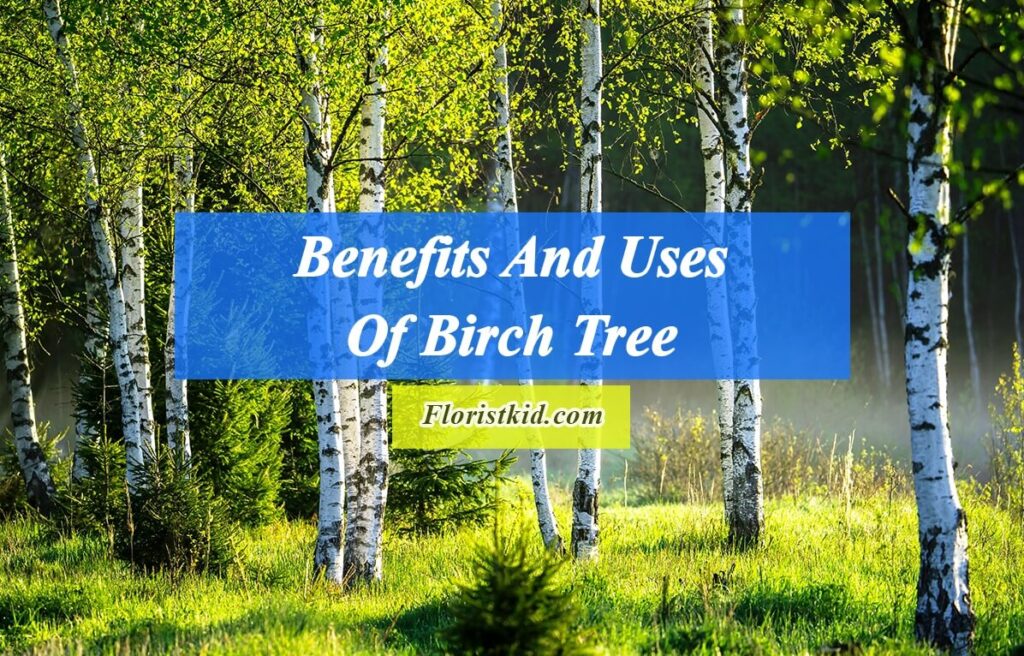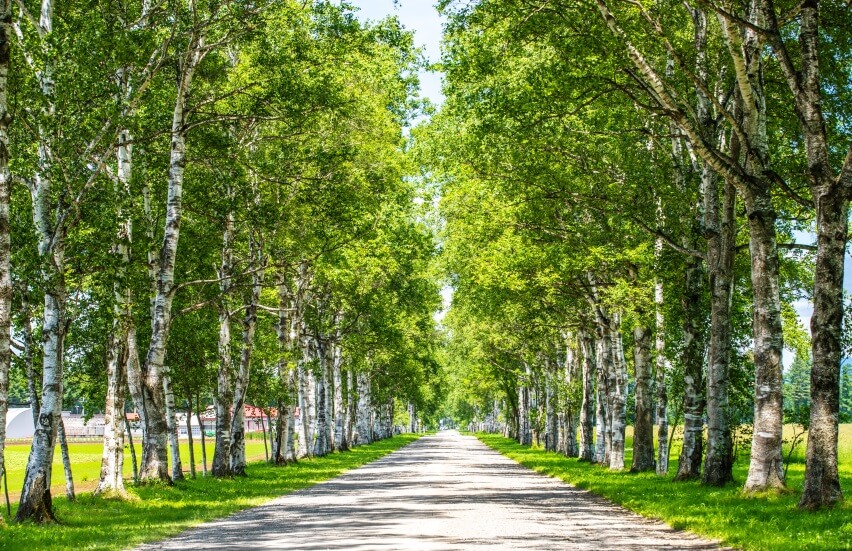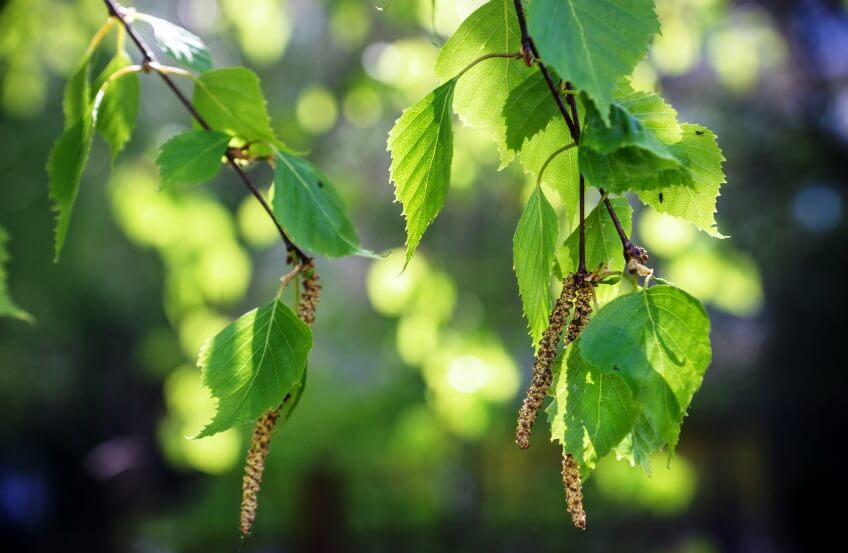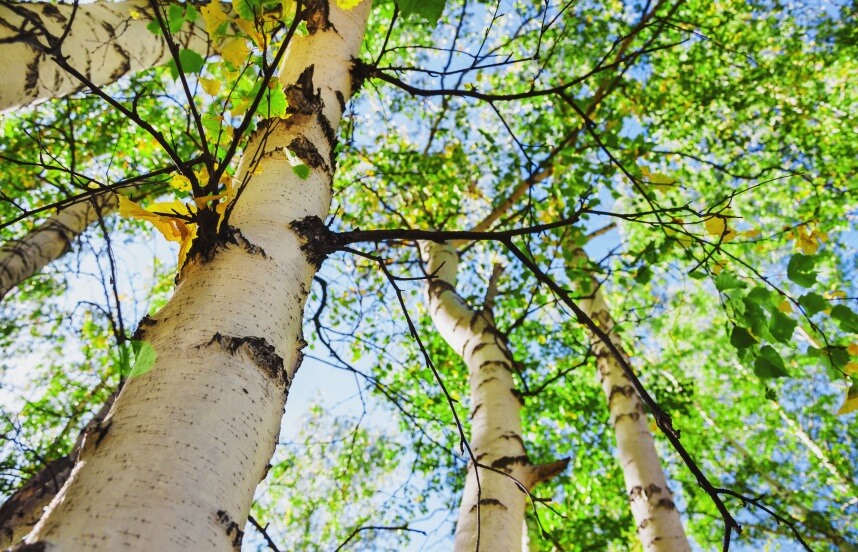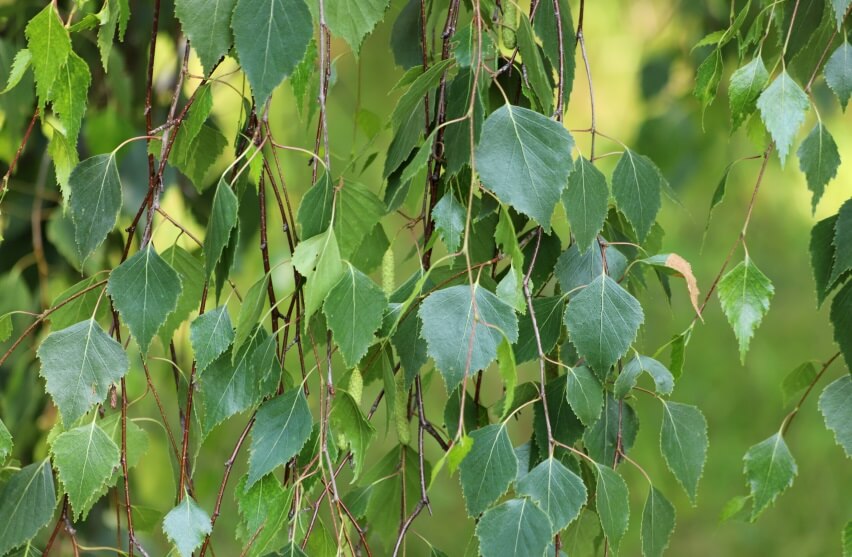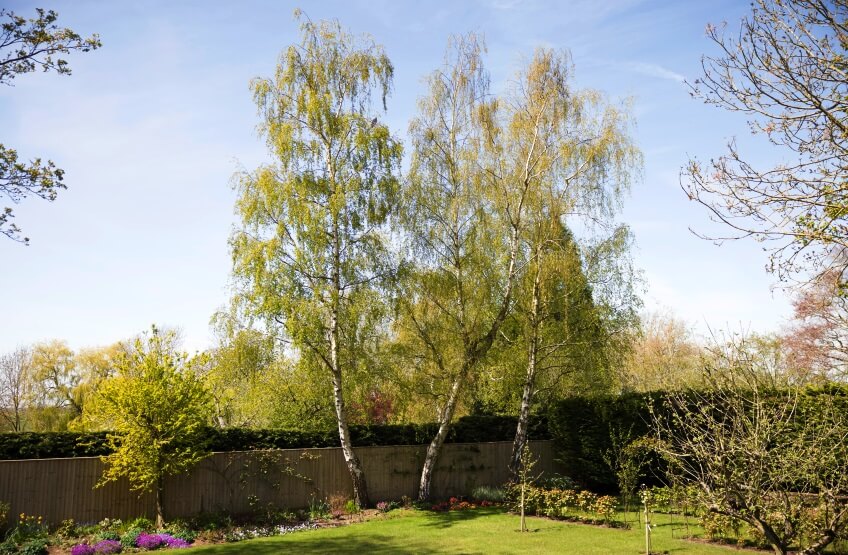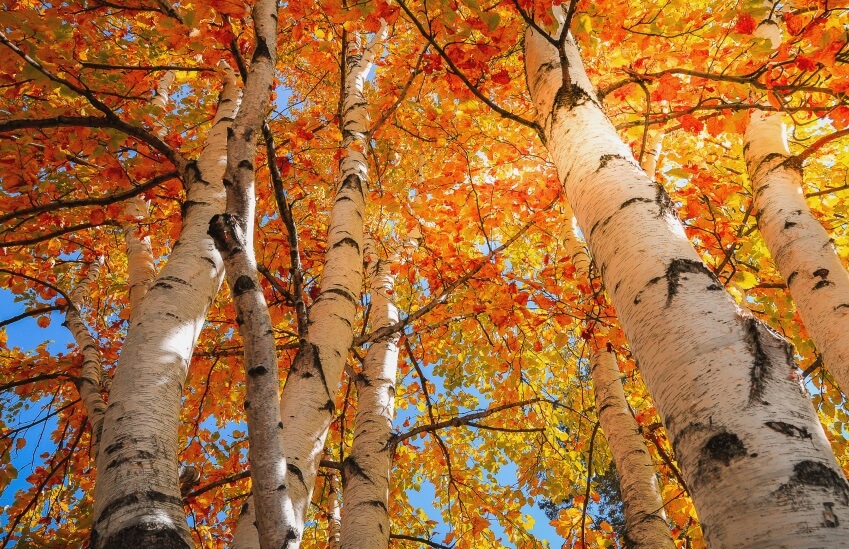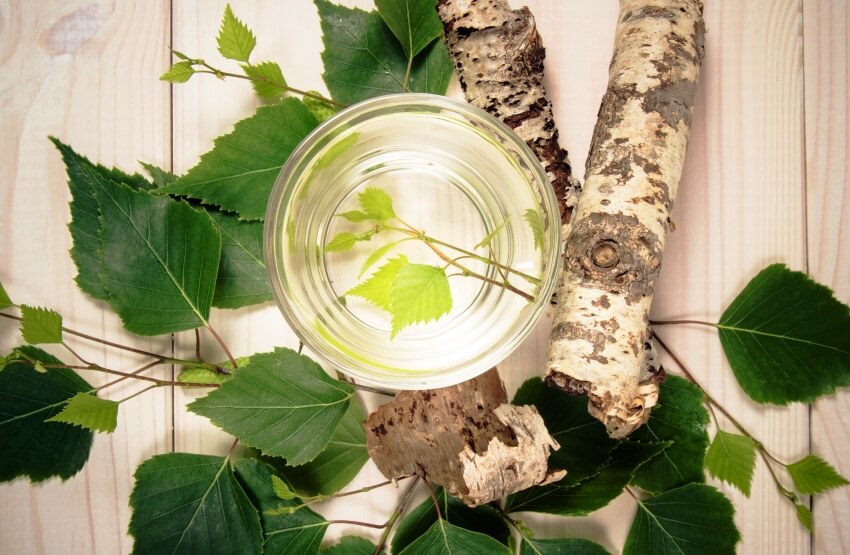Birch trees (Betula spp.), with their slender trunks, distinctive bark, and gracefully drooping leaves, have long been admired for their beauty. However, these majestic trees offer much more than just visual appeal. The benefits and uses of birch trees extend beyond mere aesthetics, encompassing various aspects such as medicine, woodworking, culinary applications, and more. Here, we explore the many ways in which birch trees contribute to our lives [1].
If you are interested in this topic, you can also read
<<Loquat Tree Benefits>> and <<Cedar Trees Benefits>> articles.
Uses And Benefits Of Birch Tree
Medicinal Properties
Birch trees have a rich history in traditional medicine and herbal remedies. Various parts of the tree, including the bark, leaves, and sap, contain active compounds and antioxidants that offer numerous health benefits. Birch bark, for instance, contains betulin, a compound known for its anti-inflammatory, anti-microbial, and anti-cancer properties. This bark extract is used for treating skin conditions, including eczema and psoriasis. Furthermore, birch sap is known to possess detoxifying and diuretic properties, supporting kidney and liver health [2].
Woodworking And Furniture
Birch wood is highly sought after in the field of woodworking due to its strength, durability, and attractive grain patterns. Birch is commonly used for crafting furniture, flooring, cabinetry, and various interior finishes. The unique pale yellow to light brown color of the wood, coupled with its natural luster, makes birch a preferred choice for creating visually pleasing, high-quality furniture pieces [3].
Paper Production
The inner bark of birch trees, known as “bast”, is widely utilized in the papermaking industry. Its long, strong fibers create a robust material that enhances the durability and quality of paper products. Additionally, the smoothness of birch-based paper, combined with its resistance to yellowing, makes it ideal for writing, printing, and other demanding applications [4, 5].
Culinary Applications
Birch trees play a role in culinary traditions in various cultures. Birch sap, commonly referred to as birch water, is harvested in spring and has gained popularity as a natural, refreshing beverage. Its slightly sweet taste, and rich in nutrients make it a popular choice for hydration and as a natural alternative to sugary drinks. Furthermore, birch bark is sometimes used in cooking as a flavoring agent or wrap for food, imparting a subtle and unique taste to dishes [6].
Decorative And Landscaping Purposes
Thanks to their graceful appearance and distinctive white, peeling bark, Birch trees are a popular choice for landscape designers. These trees add beauty and texture to gardens and parks, especially during the winter months when their bark stands out against the surrounding landscape. Birch trees are also frequently used in windbreaks and screens due to their dense foliage and tolerance against various climates [7, 8].
Birch Bark Benefits
Health Benefits
For many years, birch trees were prized for their therapeutic qualities. The bark, leaves, and sap of birch trees contain compounds such as betulin, betulinic acid, and salicylates, which possess anti-inflammatory, antiseptic, and analgesic properties. These components make birch tree extracts particularly useful in traditional medicine for relieving symptoms of conditions such as arthritis, gout, eczema, and psoriasis [9, 10].
Natural Skin Care
The birch tree’s bark, leaves, and essential oils are also a part of numerous skincare products. Their astringent and rejuvenating qualities make them effective in treating skin irritations, promoting healing, and improving overall skin health. Birch extracts are commonly found in moisturizers, toners, cleansers, and even anti-aging creams to enhance skin appearance and texture [11, 12].
Environmental Significance
Birch trees play an essential role in maintaining a healthy ecosystem. They provide shade and habitat for a variety of birds, insects, and mammals. Birch trees have a symbiotic relationship with mycorrhizal fungi, which helps in transferring nutrients to the tree, thereby contributing to the overall health of surrounding plants and allowing for healthier soil ecosystems [13].
Natural Dyes
That’s not all the benefits of Birch tree and Birch bark. Birch trees have been used traditionally for their ability to provide natural dyes. The bark can produce colors ranging from warm golden yellows, deep reds, and rich browns. These dyes have been employed in textiles and crafts, allowing for eco-friendly and sustainable alternatives to synthetic dyes [14].
Birch Tea Benefits
Birch tea, derived from the sap, bark and leaves of the birch tree, has been recognized for its numerous health benefits. Packed with essential nutrients and bioactive compounds, this herbal beverage has been traditionally consumed across various cultures for its potential therapeutic properties. In this section we will delve into the intriguing benefits of birch tea and shed light on why it deserves a place in your daily routine [15].
Rich In Antioxidants
Birch tea contains a variety of powerful antioxidants, such as polyphenols and flavonoids, which help combat oxidative stress and reduce the risk of chronic diseases. These anti-oxidants protect cells from damage caused by free radicals, promoting overall well-being and enhancing the immune system [16, 17, 18].
Detoxification And Cleansing
Known for its diuretic properties, birch tea aids in flushing out toxins and excess fluids from the body. Its natural diuretic effect can support kidney and bladder health, potentially assisting in the prevention of urinary tract infections and kidney stone formation. Regular consumption of this herbal tea may serve as a gentle detoxifier, helping to purify the body and maintain optimal urinary function [19].
Anti-Inflammatory Effects
Birch tea possesses anti-inflammatory properties that may contribute to reducing inflammation in the body. Inflammation is often associated with chronic health conditions, including arthritis and inflammatory bowel disease. By incorporating birch tea into your diet, you may experience diminished inflammation and associated symptoms, leading to improved joint mobility and digestive health [20, 21].
Promotes Digestive Health
Birch tea has traditionally been used to aid digestion and alleviate gastrointestinal discomfort. Drinking birch tea after a meal can aid in digestion, relieve bloating, and minimize stomach ulcers. Additionally, it may promote a healthy gut microbiome, optimizing nutrient absorption and supporting overall digestive well-being [22].
Supports Skin Health
The beneficial compounds found in birch tea, such as tannins and flavonoids, contribute to its potential skin-healing properties. Drinking birch tea may help alleviate skin conditions like eczema and psoriasis, as well as minor irritations and inflammations. Additionally, the anti-oxidants in birch tea can assist in neutralizing free radicals that contribute to premature aging, keeping your skin radiant and youthful [23].
How To Make Birch Bark Tea
Birch tea is a classic herbal infusion enjoyed by many for its earthy, slightly sweet flavor and numerous potential health benefits. Derived from the inner bark of the birch tree, this tea is easy to prepare and can be a delightful addition to your daily routine. In this section, we will guide you through the simple steps to make birch tea at home [24].
What You Need:
- Birch Bark:
Choose fresh, healthy bark from a birch tree. Avoid trees that have been treated with pesticides or other chemicals.
- Water:
Use fresh, clean water for best results.
- Pot Or Kettle:
Opt for a non-reactive stainless steel or glass pot/kettle for boiling the water and steeping the tea.
- Strainer:
A fine-mesh strainer or cheesecloth to remove any bark particles before drinking.
Step-by-Step Instructions:
- Gather And Prepare The Birch Bark:
Take a walk and find a birch tree with healthy bark. Ensure the tree is not endangered or protected. Harvest a small amount of bark, gently peeling it off. To prevent harming the tree, only remove bark from branches or areas already damaged or fallen.
- Rinse The Birch Bark:
Rinse the birch bark thoroughly with cold water to clear away any debris or insects. Ensure that the bark is clean before proceeding.
- Boil The Water:
Bring a pot or kettle filled with water to a boil. The amount of water depends on the desired strength and concentration of your tea.
- Add The Birch Bark:
Once the water comes to a boil, add the rinsed birch bark pieces. Reduce the heat to a simmer and cover the pot or kettle. Allow the bark to steep for approximately 10-15 minutes, depending on your preferred strength.
- Strain And Serve:
After steeping, carefully pour the birch tea through a strainer or cheesecloth to remove any small particles. This step ensures a smooth, clear tea free from bark remnants.
- Enjoy Your Birch Tea:
Pour the tea into your favorite cup, and if desired, sweeten it with honey or any preferred sweetener. Birch tea can be consumed both hot and cold, depending on personal preference.
Conclusion
From their medicinal benefits to their contribution to various industries, birch trees have proven to be an invaluable natural resource. Whether it is their healing properties, the versatility of their wood, or their aesthetic appeal, birch trees offer a plethora of benefits to our lives. Demonstrating the interconnection between nature and human well-being, birch trees serve as a reminder of the intricate relationship we have with the environment and the importance of sustainable practices to preserve these invaluable resources for future generations.

